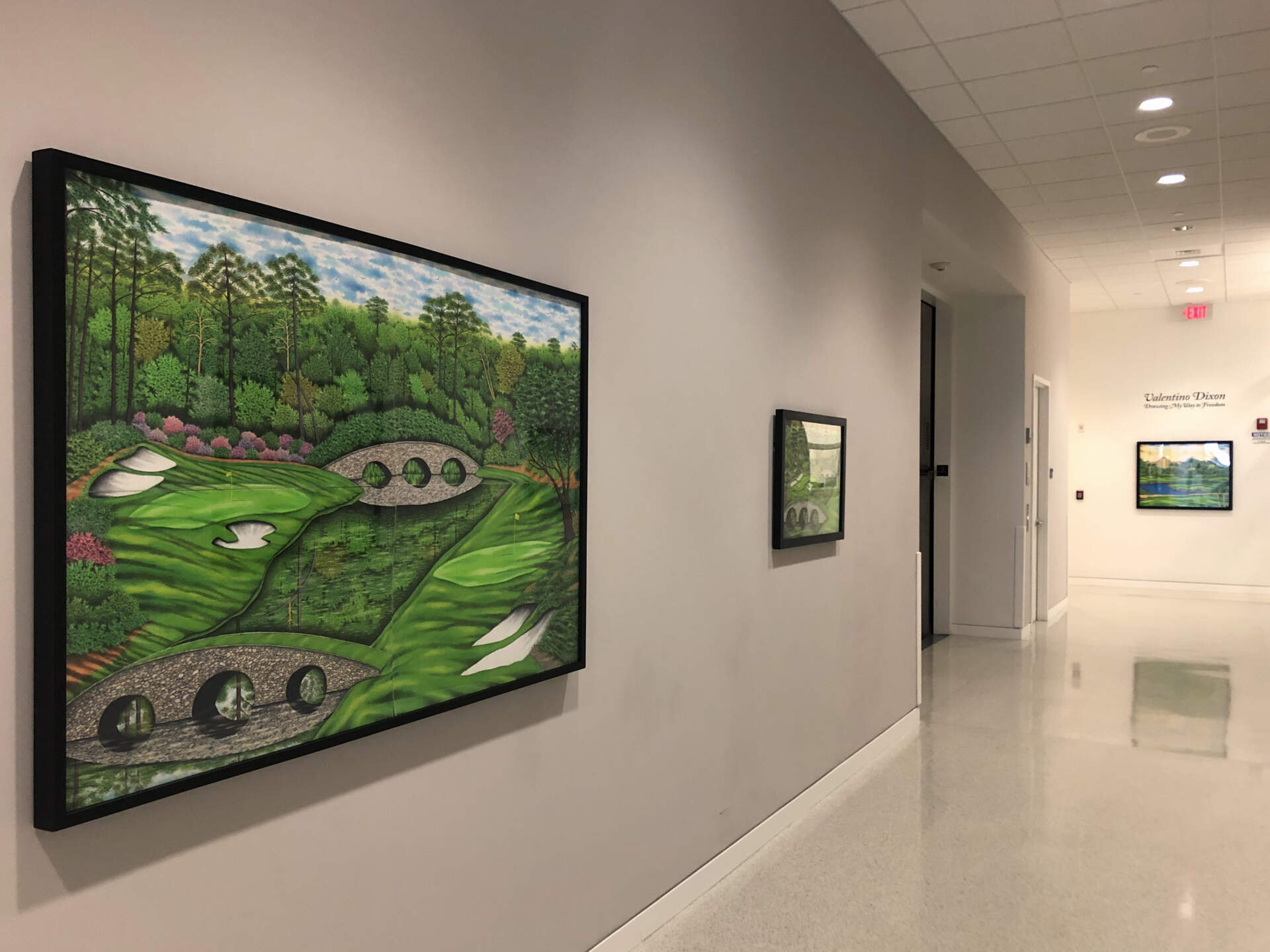
Valentino Dixon: Drawing My Way To Freedom
Presented in collaboration with the Buffalo Jewish Community Relations Council (JCRC)
Past
Oct 11, 2019 - Mar 29, 2020
Valentino Dixon was 21 when he was arrested for a fatal shooting during a disturbance outside a bar in Buffalo on the night of August 10, 1991. Imprisoned for a murder he didn't commit, he discovered solace in art. The Burchfield Penney in collaboration with Buffalo Jewish Community Relations Council (JCRC) will present Valentino Dixon: Drawing My Way To Freedom an exhibition of paintings that guided him to freedom.
Dixon loved to draw as a child and took up sketching again to escape the harsh realities of prison after being handed 39 years to life.
His art saved him. Valentino struggled to adjust to life in prison, until he reconnected with his inner passion for art. He regained his motivation to draw by following his uncle's advice: “if you reclaim your talent, you can reclaim your life.” Valentino drew for up to 10 hours a day. His reputation as an artist led the warden at the tough Attica Correctional Facility to ask him to draw the 12th hole of the legendary Augusta National Golf Club.
Dixon was no golfer, but the images of vivid green grass, clear blue skies, water, flowers and trees fired his imagination.
Fast forward to April 2019, and Dixon—exonerated in September 2018 after 27 years in prison—was invited to the Masters at Augusta to sketch for Golf Digest and to walk in the pictures previously only in his mind.
"I don't have no words to describe how beautiful it is," Dixon told CNN Sport. "It was 10 times better than I expected.”
During and after his period of incarceration, Valentino has established his reputation as an informed and inspiring voice on criminal justice issues and improvement opportunities. He will present several talks during the exhibition run to share his story, campaign for much-needed sentencing reform and other changes to the criminal justice system.
About the Buffalo Jewish Community Relations Council (JCRC)
Inspired by core Jewish values, the Jewish Community Relations Council (JCRC) seeks to sustain a more civil and caring community in Western New York and around the world. The JCRC builds meaningful and collaborative relationships with other faith, ethnic, and cultural communities and during times of crisis serves as a visible voice on vital social issues, including criminal justice reform.